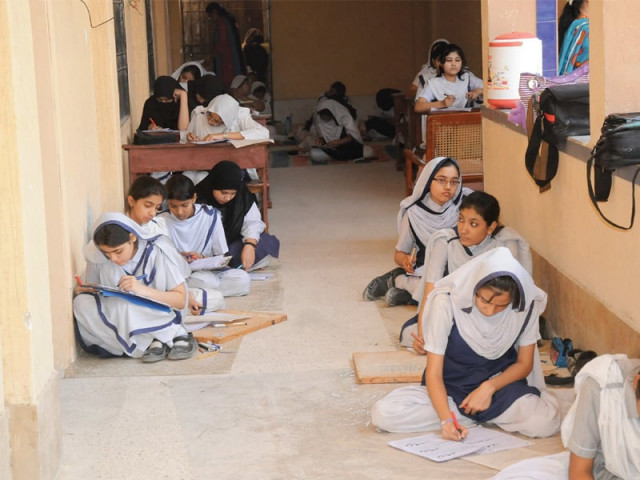Around 40% of students from public schools locked out of good colleges
Their counterparts from private schools have, however, passed with flying colours.

The statistics speak for themselves: Around 35,300 students from Karachi’s public schools took the matriculation exams in April this year. Only 55 percent of them managed to pass and out of the lucky ones, only 299 could score ‘A1’, the top grade awarded to students who score 80 percent or more.
When juxtaposed with public schools’ performance, private institutions seem to be churning out high-flyers: About 76 percent of the students studying in them cleared the exams and more than 14,000 scored the ‘A-1’ grades. A huge chunk of public schools’ graduates - around 39 per cent - scored less than 60 percent and were awarded Cs. With this result, the doors of good colleges are locked for them.
But things are likely to get gloomier, as experts point to the government’s apathy, saying that it has not done enough to reform the deteriorating system. “If these figures have any significance for education officials, then they must think about the future of more than half a million children who are currently enrolled in these schools,” said Amima Sayeed, the chairperson of Pakistan Coalition for Education, a group advocating changes in public schools. She was not taken aback by the students’ poor performance in current circumstances. “When the foundation is not solid, the building is bound to collapse.”

She asserted that the problem, by and large, had been administrative. The present government’s tenure was marred by administrative uncertainty and bureaucratic procedures greatly affected major educational reforms that were proposed over the last four years.
In the absence of streamlined governance, administrative and academic appointments were made on favouritism - either political or kinships - and nobody cared to peek into the classrooms and have a look at what has going on in them, said Syed.
“There is no system in place for teachers’ performance appraisal and monitoring of schools. Teachers’ salaries were raised because of political reasons and a large number of them have been getting paid even though they have not shown up at schools.”
It has been five years since the curriculum was last updated. The Sindh Textbook Board’s books, however, have failed to reflect the changes that were made. “Private schools use textbooks prepared by private publishing companies, which were based on the national curriculum but adapted to modern needs.”
Published in The Express Tribune, November 27th, 2012.



















COMMENTS
Comments are moderated and generally will be posted if they are on-topic and not abusive.
For more information, please see our Comments FAQ